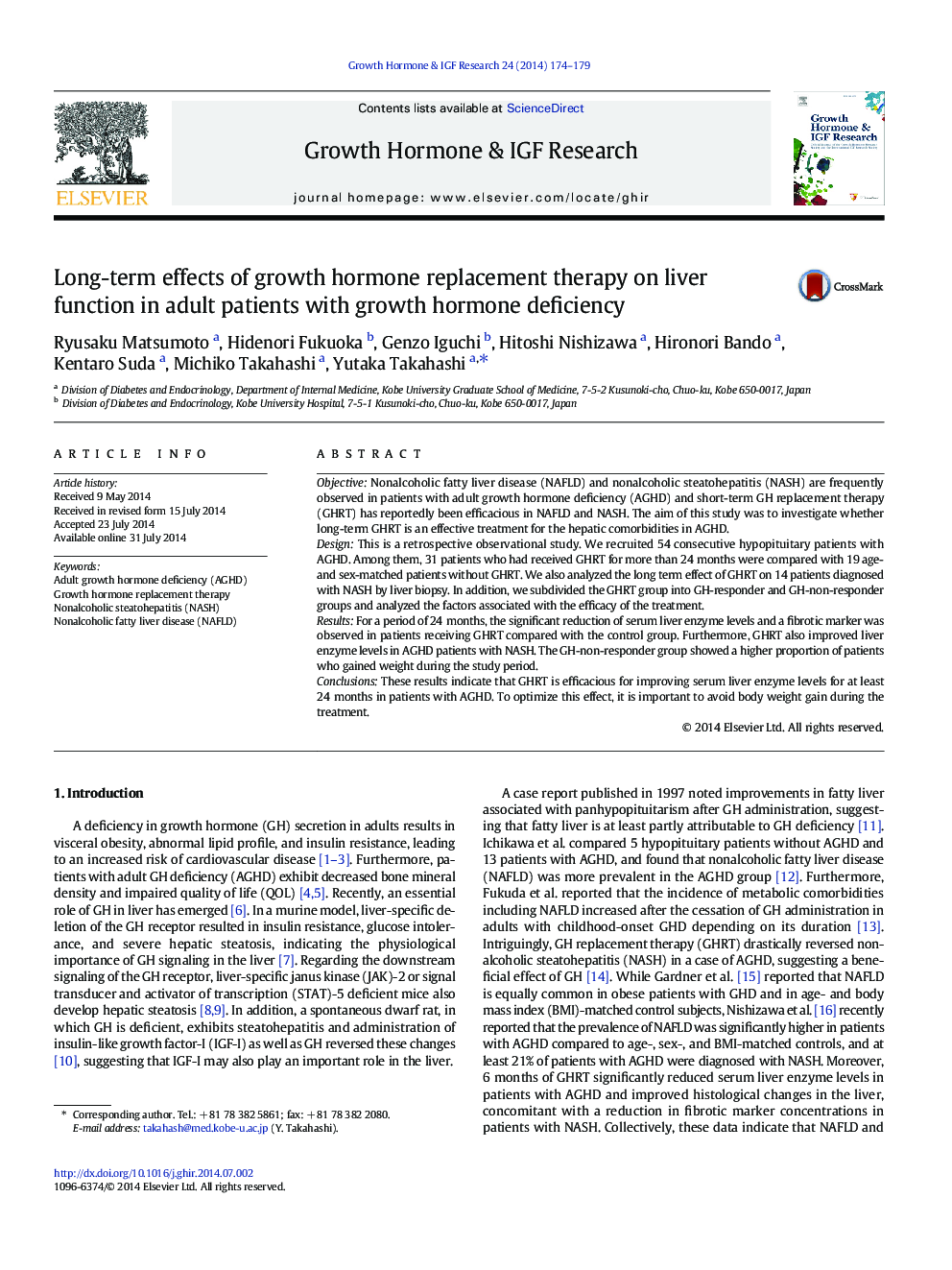| Article ID | Journal | Published Year | Pages | File Type |
|---|---|---|---|---|
| 2802507 | Growth Hormone & IGF Research | 2014 | 6 Pages |
•Liver dysfunction is an important comorbidity in patients with adult GH deficiency.•We investigated the effects of long-term GH therapy on liver function.•GH therapy was efficacious for at least 24 months in terms of liver enzyme levels.•Body weight gain during the therapy attenuated the effect of GH therapy.
ObjectiveNonalcoholic fatty liver disease (NAFLD) and nonalcoholic steatohepatitis (NASH) are frequently observed in patients with adult growth hormone deficiency (AGHD) and short-term GH replacement therapy (GHRT) has reportedly been efficacious in NAFLD and NASH. The aim of this study was to investigate whether long-term GHRT is an effective treatment for the hepatic comorbidities in AGHD.DesignThis is a retrospective observational study. We recruited 54 consecutive hypopituitary patients with AGHD. Among them, 31 patients who had received GHRT for more than 24 months were compared with 19 age- and sex-matched patients without GHRT. We also analyzed the long term effect of GHRT on 14 patients diagnosed with NASH by liver biopsy. In addition, we subdivided the GHRT group into GH-responder and GH-non-responder groups and analyzed the factors associated with the efficacy of the treatment.ResultsFor a period of 24 months, the significant reduction of serum liver enzyme levels and a fibrotic marker was observed in patients receiving GHRT compared with the control group. Furthermore, GHRT also improved liver enzyme levels in AGHD patients with NASH. The GH-non-responder group showed a higher proportion of patients who gained weight during the study period.ConclusionsThese results indicate that GHRT is efficacious for improving serum liver enzyme levels for at least 24 months in patients with AGHD. To optimize this effect, it is important to avoid body weight gain during the treatment.
